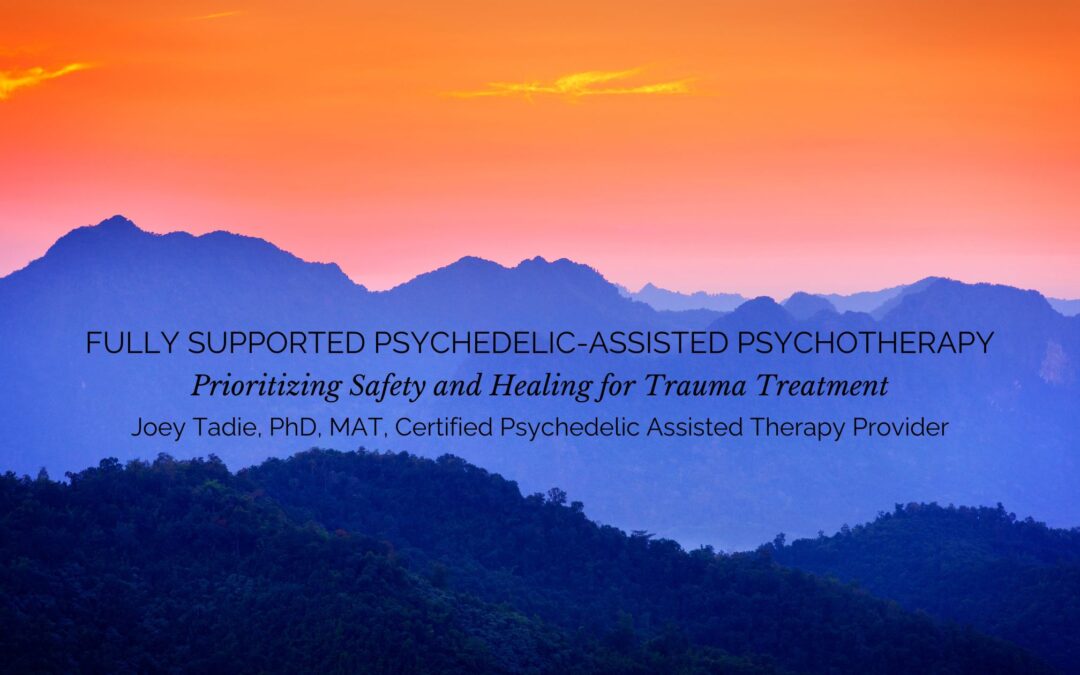Ketamine Assisted Psychotherapy (KAP) has compelling research supporting its use for treating various forms of depression. There is also emerging research that psychedelic-assisted therapies such as KAP might have utility for treating Post-Traumatic Stress Disorder (PTSD). At The Catalyst Center, we use a model for KAP that includes having a trained therapist in the room throughout your treatment. Moreover, we also heavily emphasize integration therapy, or therapy designed to process and internalize growth from KAP sessions. There are important reasons for this, and it is particularly crucial when clients who have a history of trauma are pursuing KAP. I will highlight three reasons The Catalyst Center prioritizes fully supported KAP experiences for clients seeking to address trauma.
 Trauma Can Be Tricky
Trauma Can Be Tricky
Trauma can be unpredictable in terms of how it might get triggered or the intensity that might come with any triggers.
Depth-oriented therapies such as KAP can stir various emotions and memories, which can show up more strongly than clients might expect. If a client becomes triggered during their KAP session, it could be a disorienting and even frightening experience. Having a trusted therapist in the room can serve as game-changing support during emotionally challenging journeys.
Therapists Help Anchor
KAP sessions often involve altered states of consciousness that can sometimes make clients feel like they are out of control. Although this is common during KAP sessions and not in itself a dangerous experience, it can be upsetting to some clients, including those with trauma histories. Trauma experiences often involve profound feelings related to losing control, which is part of what makes them have such a lasting impact. If clients are overwhelmed by the experience of “letting go” in a KAP experience, having a therapist as an anchor can be highly beneficial. Therapists can talk, reassure, and even hold your hand (with prior consent – preparation sessions are also used to establish what might feel right to you if you need more support). Healing from trauma goes best when there is stability, consistency, and an anchor-like quality to the therapeutic relationship, and this is even more crucial during KAP work.
A Container, Witness, and Scribe
 Having a therapist present during your KAP journey can serve many purposes and make the journey more productive and meaningful. First, the therapist helps “set the container” for the trauma work by holding the space to ensure you are supported while not disturbed during the process. They serve as a trusted witness to your experience when you are in the midst of your altered state, which can help promote feelings of stability to have a trusted ally present. The therapist can also be a scribe by keeping notes on anything said both during and after your journey concludes. Many clients find it helpful to go back and review the notes on what thoughts and feelings they were having as they come back into their consciousness. In addition, when tackling trauma work, there is power in the continuity of support when clients can do follow-up integration therapy sessions with the very same therapist who was with them throughout the entirety of the journey.
Having a therapist present during your KAP journey can serve many purposes and make the journey more productive and meaningful. First, the therapist helps “set the container” for the trauma work by holding the space to ensure you are supported while not disturbed during the process. They serve as a trusted witness to your experience when you are in the midst of your altered state, which can help promote feelings of stability to have a trusted ally present. The therapist can also be a scribe by keeping notes on anything said both during and after your journey concludes. Many clients find it helpful to go back and review the notes on what thoughts and feelings they were having as they come back into their consciousness. In addition, when tackling trauma work, there is power in the continuity of support when clients can do follow-up integration therapy sessions with the very same therapist who was with them throughout the entirety of the journey.
While there are many models for KAP work, I strongly recommend clients consider the benefits of having a therapist accompany them throughout their healing journey when trauma has been a part of their experience. Fully supported journeys can be beneficial for many reasons and can be a powerful opportunity to blend the medicinal benefits of ketamine with the benefits of integrative therapy.
Photo Credits:
Photo by John Fowler on Unsplash




